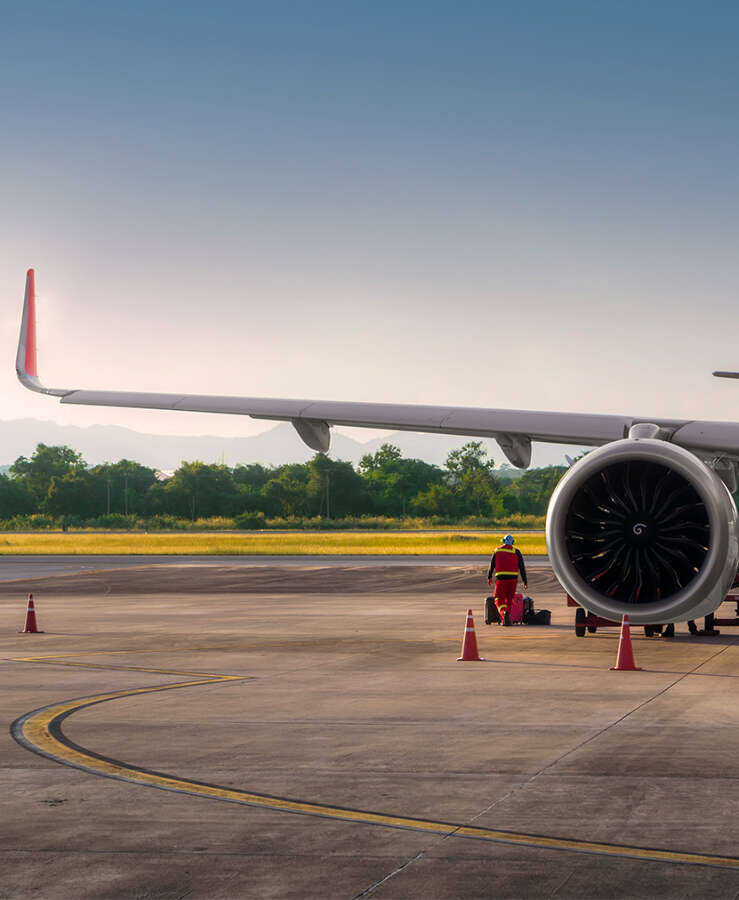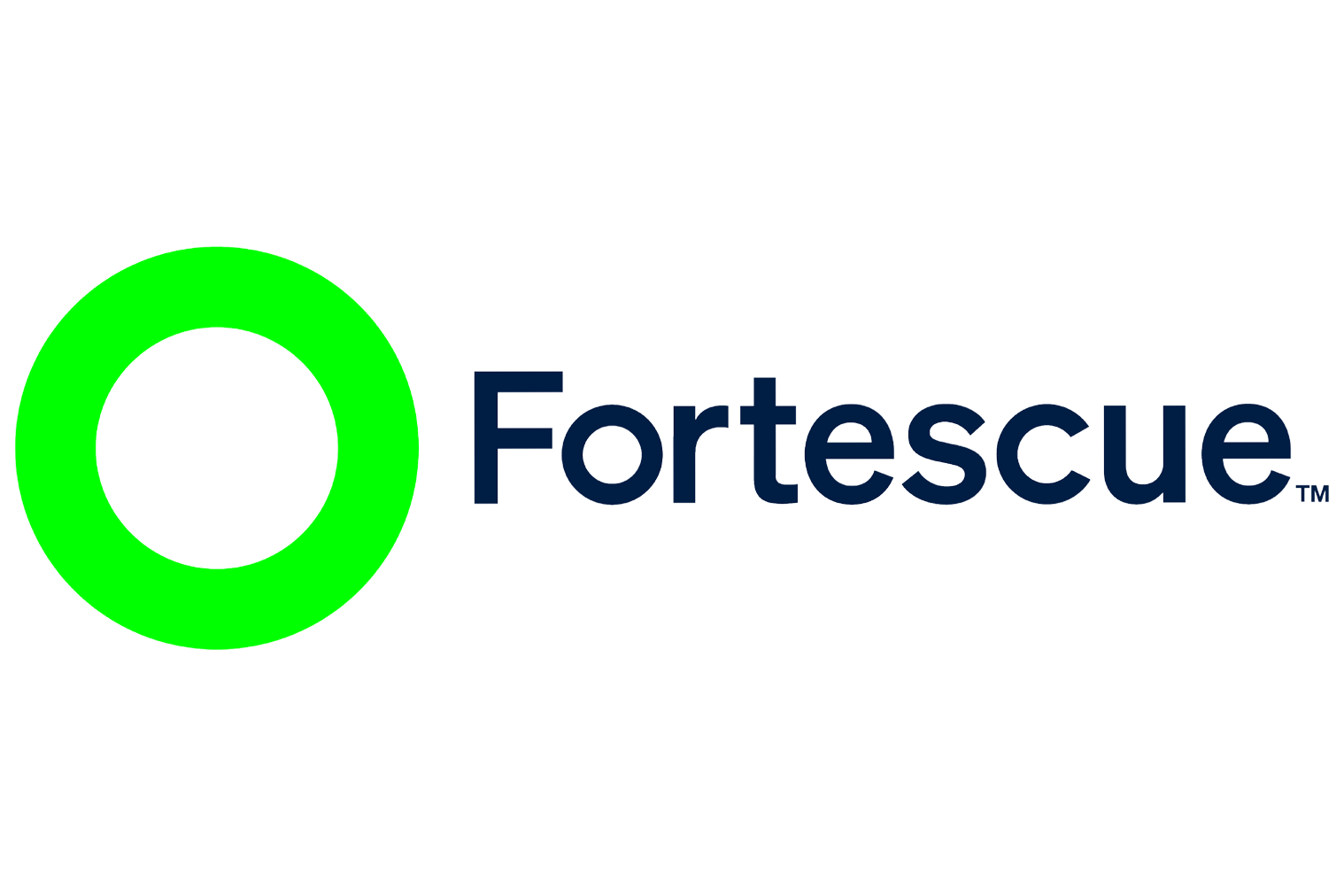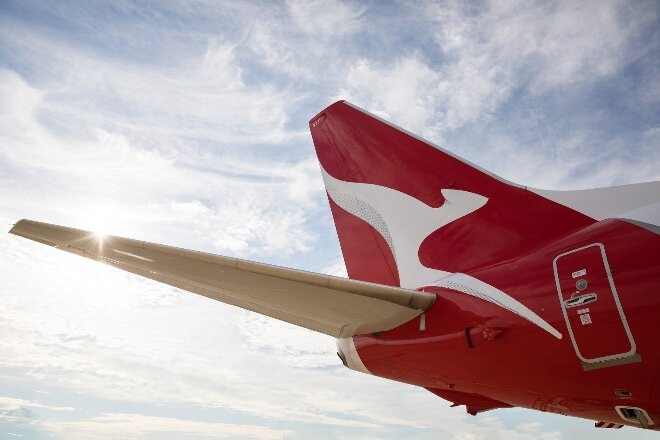
Partnering for the future of flying
Reducing our current reliance on traditional jet fuels is a journey, and we’re in it for the long haul.
Australia’s first SAF Coalition program
We've established Australia's first coalition program to support the efforts to reduce the environmental impact of aviation through the use of sustainable aviation fuel (SAF). Climate action is more effective together, and the Qantas Sustainable Aviation Fuel Coalition program offers our corporate partners the opportunity to help contribute to the development and future use of SAF by contributing to the incremental cost of acquiring SAF.
Our program aims to support the development of a domestic SAF industry while helping ambitious and environmentally conscious corporations to take steps to lower business travel emissions attributable to their employees flying on Qantas' network.
SAF is currently considered one of the most promising ways to mitigate aviation's impact on the environment and is viewed as a 'direct' emission reduction (in contrast to the use of carbon credits). As a member of the Qantas SAF Coalition, corporations contribute to the incremental cost of SAF being purchased by Qantas, initially out of London, Heathrow.
By contributing to the acquisition cost of SAF, these partnerships are crucial to making SAF more affordable, which can be several times more expensive than traditional jet fuel.
Program members
As part of the SAF Coalition, your membership will help to reduce the environmental impact of aviation by assisting in the adoption of SAF. Your membership will contribute to the incremental acquisition cost of SAF, thereby helping to encourage the broader use of SAF in Australia, and provide the opportunity to partner with leading sustainability-minded organisations.
Partners |
|||||
|---|---|---|---|---|---|
 |
 |
 |
 |
 |
|
 |
 |
 |
 |
||
Members |
||||
|---|---|---|---|---|
 |
 |
 |
 |
|
What is sustainable aviation fuel?
Sustainable aviation fuel (SAF) is a globally accepted, industry umbrella term that covers a range of non-conventional fuels made from a variety of biogenic and non biogenic feedstocks and processing technologies such as used cooking oils, council waste, plant oils, agricultural residues and non-biological sources. Biogenic SAF has the potential to reduce lifecycle emissions typically by up to 80% compared to conventional jet fuel. Non-biogenic SAF — or synthetic fuel / efuels — is a pathway which utilises carbon dioxide, green hydrogen and significant amounts of renewable electricity to synthesise a liquid fuel with favourable sustainability characteristics (emissions can be reduced on a lifestyle basis by up to 90% compared to fossil fuels).
In order to be a 'drop in' compatible with existing aircraft and fuelling infrastructure, SAFs are required to be blended currently with fossil jet fuel up to a 50% blend limit. The industry is moving towards a 100% SAF blend and we expect that to occur in the second half of this decade.
With our goal to reach net zero by 2050, we're entering into partnerships with the aim of accelerating the use of SAF across our fleet, and the development of a SAF industry in Australia over time. While SAF is currently only a small part of our fuel mix, comprising 0.2% of our fuel use, we're targeting 10% of our fuel to come from SAF by 2030 and 60% by 2050.
Watch the video to find out more about SAF and how it will help contribute to achieving our sustainability goals.
Join our program
Learn more about how your company can join our Coalition to help reduce the environmental impact of aviation by assisting in the adoption of SAF and partner with leading sustainability-minded organisations.
Contact us by sending an email and our SAF team will be in touch.
Unlock Green Tier

Green Tier recognises and rewards Australian resident Qantas Frequent Flyers for making choices at home and when they travel that help to reduce or compensate for your environmental impact.
As a member of the Qantas SAF Coalition, you'll get a head start in your journey with business travel recognised as one of the required activities for achieving Green Tier.
A commitment to Australia's sustainable aviation fuel market

Air travel is currently not sustainable, and the path to net zero is uniquely challenging for the aviation sector. Substantial investment and support are needed to develop and scale the solutions our industry will require to meet its climate targets.
As Australia’s largest airline, the Qantas Group recognises the crucial role we have to play in supporting the development of solutions to lower the environmental impact of flying.
The Group has taken a leadership position and established the Qantas Climate Fund, dedicated to directly investing in the development of solutions to support meeting our sustainability targets and helping reduce our impact - both in the air and on the ground.
The Fund will invest in projects and technologies across SAF, carbon credits which meet our integrity and quality requirements, carbon removal technology, operational efficiency, and waste reduction.
Frequently asked questions
Important Information
Disclaimer: * You must be a Qantas Frequent Flyer to earn and use Qantas Points. A joining fee may apply. Membership and points are subject to the Qantas Frequent Flyer program terms and conditions
To be eligible for Green Tier status, Qantas Frequent Flyer members must complete one activity in five out of six Green Tier categories in a Membership Year. Members must be residing in Australia with an Australian residential address in their profile. Members must be logged in to their Qantas Frequent Flyer account when completing the relevant activity (for example, booking an eco-accredited hotel) and residing in Australia with an Australian residential address in their profile. For full details on Green Tier activity assocciated with the SAF Coalition, program members can refer to their contract.
